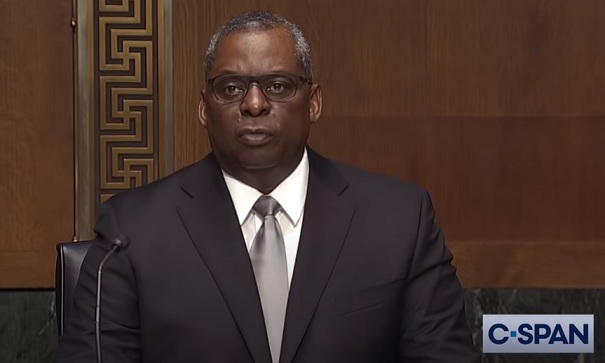Analysis by WorldTribune Staff, March 5, 2021
Fighting the “enemy within” is apparently a top priority for the team running the Joe Biden White House and the military brass under their command.
During his Senate confirmation hearings, Defense Secretary Lloyd Austin pledged to “rid our ranks of racists and extremists.”

“The job of the Department of Defense is to keep America safe from our enemies. But we can’t do that if some of those enemies lie within our own ranks,” Austin said.
The problem, as conservative analysts frequently note, is that according to the narrative parroted by the Democrat media monolith and establishment, the terms “racists and extremists” are synonymous with patriotic and often Christian conservatives. Are such the new “enemies within our own ranks”?
Austin followed up those proclamations by ordering a “stand down” of the entire U.S. military for 60 days in order for commanders to address “extremism” in the ranks.
Now, the Pentagon “is looking for a new way to screen social media as part of its background check process, in an effort to prevent extremist behavior in the ranks,” Stephen Losey reported for Military.com on March 3.
The Pentagon under the Biden administration “is examining a scalable means of implementing social media screening in conjunction with background investigations,” Pentagon officials said in suggested training materials distributed for Austin’s stand-down order.
According to Department of Defense training materials, the report said, military personnel and department civilians, who submit an SF-86 form to begin a background investigation process, consent to having their publicly available social media information reviewed. The FBI currently is screening social media for extremism and criminal activity, the document states.
Anthony Kuhn, an attorney with the law firm Tully Rinckey who specializes in security clearance issues, told Military.com that the Pentagon is indicating it plans to take a much more aggressive approach to monitoring troops’ social media in the wake of the Jan. 6 breach of the U.S. Capitol.
“Kuhn said he represents several people who have had their security clearances jeopardized due in part to social media posts, so the military does look at it in at least some cases. But he added that the momentum for doing so will probably keep growing,” Losey noted in his report.
Troops are allowed to have and express their own political opinions, Kuhn said, as long as they follow certain guidelines, such as not doing so on duty or in uniform.
But the Pentagon’s new training materials make clear how service members’ activities online can run afoul of the military’s standards, such as by advocating for violence or sedition against the government.
Service members are not allowed to “actively advocat[e] supremacist, extremist or criminal gang doctrine, ideology and causes,” the training materials state. They also cannot actively participate in organizations that “advance, encourage or advocate illegal discrimination based on race, creed, color, sex, religion, ethnicity or national origin,” or “the use of force, violence or criminal activity” to deprive people of their civil rights.
The training material states that, while troops have First Amendment rights to speak freely and assemble peaceably, the military must still assess their character, honesty, discretion, judgment and trustworthiness when deciding whether they are reliable enough to have access to classified or sensitive information.
Kuhn said the Pentagon’s language suggests it might add social media checks to its continuous evaluation process, which already uses computers and investigators to track clearance holders and flag any financial trouble, criminal arrests, or emerging drug or alcohol problems.
Tracking violations of DoD regulations’ Guideline A, which requires “allegiance to the United States,” has been difficult to monitor, he said.
“That could be anything from liking a comment on a social media post that’s buried somewhere on the internet, all the way through openly advocating violence against the government or a government official,” Kuhn said. “They’re trying to figure out a system to track that kind of behavior, those types of red flags. Right now, there isn’t one.”
While the military could start by only periodically reviewing social media posts when troops need background checks, Kuhn said he expects that, before long, it would be expanded into a practice of real-time monitoring to catch whether troops are involved in emerging threats.
“They will be using whatever technology they have available to them at this point to be able to monitor, in real time, social media posts and groups they have concerns about,” Kuhn said. “I’m sure they’ve already started” working on a continuous monitoring system after the shock of the Jan. 6 Capitol attack, and the alleged number of rioters with military backgrounds.
Tucker Carlson noted in a broadcast last month that Bank of America secretly turned over to the FBI data on 211 customers who might be of interest because they were in D.C. on or after Jan. 6. Federal investigators actually interviewed one of the individuals, who was eventually cleared.
“Imagine if you were that person? The FBI hauls you in for questioning in a terror investigation,” Carlson said. “Not because you have done anything suspicious. You haven’t. You bought plane tickets and visited your country’s capital.”
Intelligence Brief __________ Replace The Media
